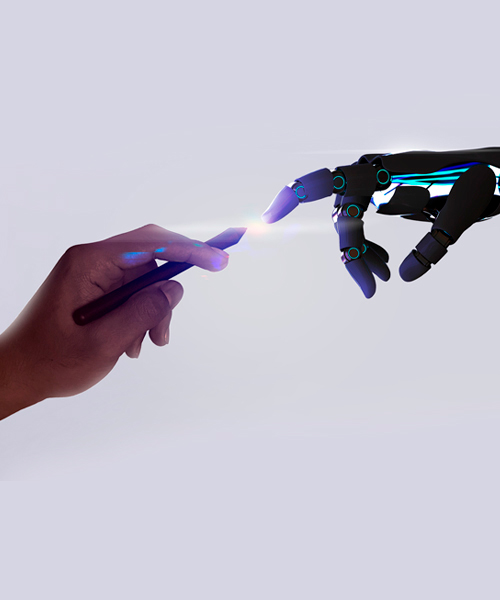
Internet of things
Internet of things
Discover everything about the IOT, the connection of everyday objects to the Internet so that they can communicate with each other and with us.

Quantum computing: the future of IT
The revolution of technology
Theoretically proposed more than 40 years ago, in recent years it has advanced exponentially: companies and universities have developed processors, computers, programming languages, and algorithms that are already changing the way we work.


Quantum computing: meaning, origin, and applications
Quantum computers will open new possibilities for us. This change of technology exploits the laws of quantum mechanics to encode information (in the form of quantum bits or qubits) and process it in a different way than is done with today's computers.
With applications such as AI, the development of molecules, simulation and process optimization, or cybersecurity, quantum computing is emerging as a technology that will transform what we can do with computers.
Quantum computing, thanks to the principles of quantum mechanics, makes it possible to tackle and solve problems that, until now, were impossible, and is destined to transform the fields of mathematics, research, and cybersecurity.
Surely at some time, even if it was in a photograph, you have seen a mechanical calculator, one of those that only added up and worked without electricity. Let's think of them as super simple computers. Mechanical calculators, with the use of electricity, improved their efficiency (they made calculations by moving wheels and similar gears, but faster) and gained some functionality such as the possibility of multiplication. With the advent of electronic computers, a paradigm shift occurred. The most internal part of the computers we use is still basically a calculating machine that adds up very fast, but it is clear that doing it differently led us to a "computing revolution" that transformed the world as we knew it. A similar situation exists with quantum computing.
It's important to be clear that quantum computing will not replace the current one in all its aspects, in fact, quantum computers need "classical" computers to be able to work and produce results. However, quantum computing will be complementary in all those cases where it really provides a substantial advantage (sometimes called quantum advantage).
What is its origin?
The first contributions on quantum computing are attributed to physicists Paul Benioff and Richard Feynman, in the early 1980s. They pioneered the idea of applying some of the principles of quantum mechanics to computing. Although it would take 30 years to create the first quantum computer, Benioff designed the first quantum computer in 1981, based on the Turing machine.
After more than 15 years of theoretical progress, in 1998 researchers at MIT managed to propagate the first cubit and create the first two-cubit quantum computer. In 2011, the company D-Wave Systems sold the first commercial quantum computer, and at the end of 2022 IBM presented Osprey, a 433-cubit quantum processor.
Year 1981
The first quantum computer is designed.
Year 1998
The first quantum computer is created.
Year 2011
The first commercial quantum computer is sold.
Year 2022
A 433-cubit quantum processor is presented.
Differences with traditional computing
Work at Repsol
Join a talented team and find your opportunity to train and develop as a professional.
Uses and applications of quantum computing
Quantum computing is here to stay and, although it is in a very early and immature stage, it's true that it's already starting to offer useful advantages. The most significant has been to provide a new way of thinking. Looking at problems with another perspective is already leading us to find how to better tackle and solve some calculations (with quantum inspired computing).
Among the applications of quantum computing are the following:
You may be interested in

Internet of things
Discover everything about the IOT, the connection of everyday objects to the Internet so that they can communicate with each other and with us.

Data Driven
Data Driven is the way of making decisions based on the analysis and interpretation of data. Want to know more?

Generative AI
What it is, advantages, examples, and our projects. We show you all about generative AI.